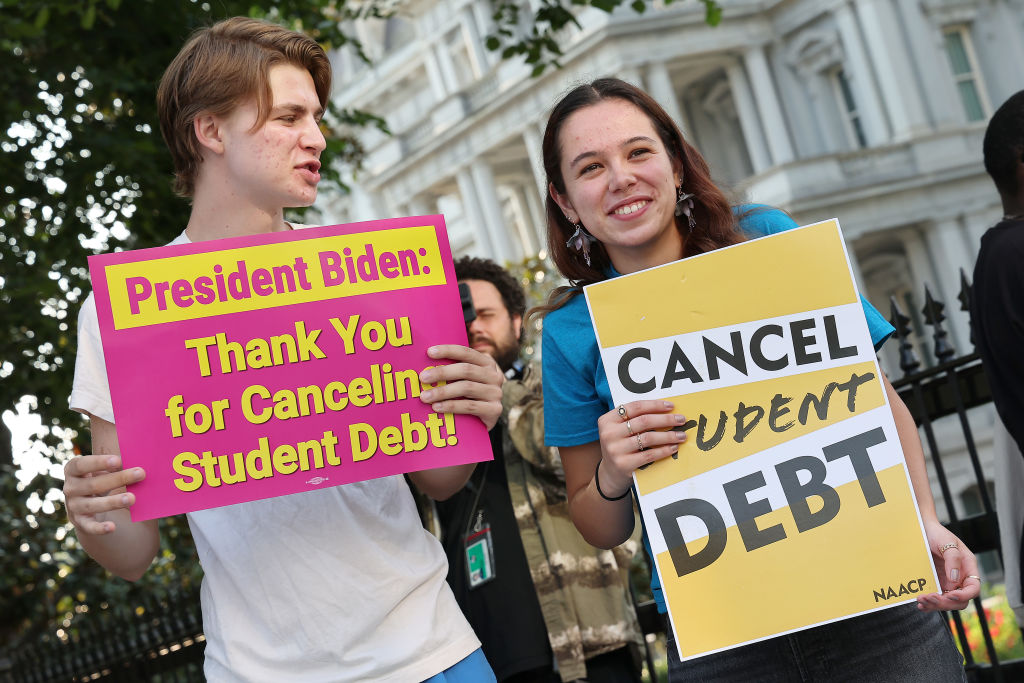



There were two Supreme Court challenges to the Biden Administration’s student debt forgiveness plan. The Justices ruled that the scheme was unconstitutional. The two cases are Biden v. Nebraska, and Department of Education v. Brown. Both cases challenge Biden’s reliance on the HEROES Act for the legal power to waive debt held by borrowers. Before reaching any judgment on the merits of the petitions, the Court first had to decide if the parties had the legal right to challenge the law. In Biden v. Nebraska, the case was filed by six Republican attorneys’ general. In Department of Education v. Brown, two individuals challenge the plan’s provisions.
The Court ruled unanimously that the individuals in Brown did not have standing to sue. Then they ruled 6-3, that the states did have standing, and that President Biden acted outside the bounds of his legal authority. Chief Justice John Roberts wrote the Court’s majority opinion, joined by Justices Clarence Thomas, Samuel Alito, Neil Gorsuch, Brett Kavanaugh, and Amy Barrett. Justice Kagan wrote in dissent, joined by Justices Sotomayor and Jackson. Justice Barrett wrote a separate concurrence.
Roberts writes, “the HEROES Act provides no authorization for the Secretary’s plan when examined using the ordinary tools of statutory interpretation—let alone ‘clear congressional authorization’ for such a program.”
The HEROES Act was passed after the Sept. 11 attacks and gives the Secretary of Education the power to respond to a “national emergency” by “waiv[ing] or modify[ing] any statutory or regulatory provision” governing the student-loan programs so that borrowers are not “placed in a worse position financially” as a result of the emergency.
